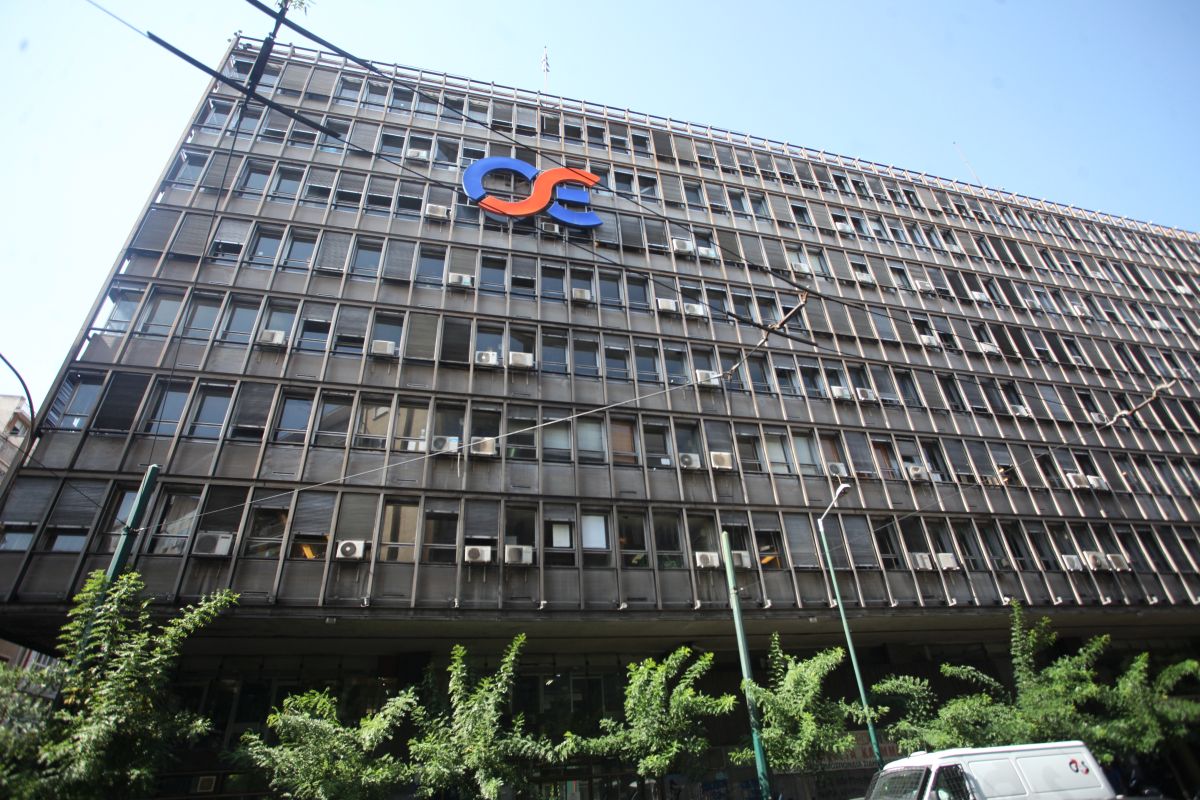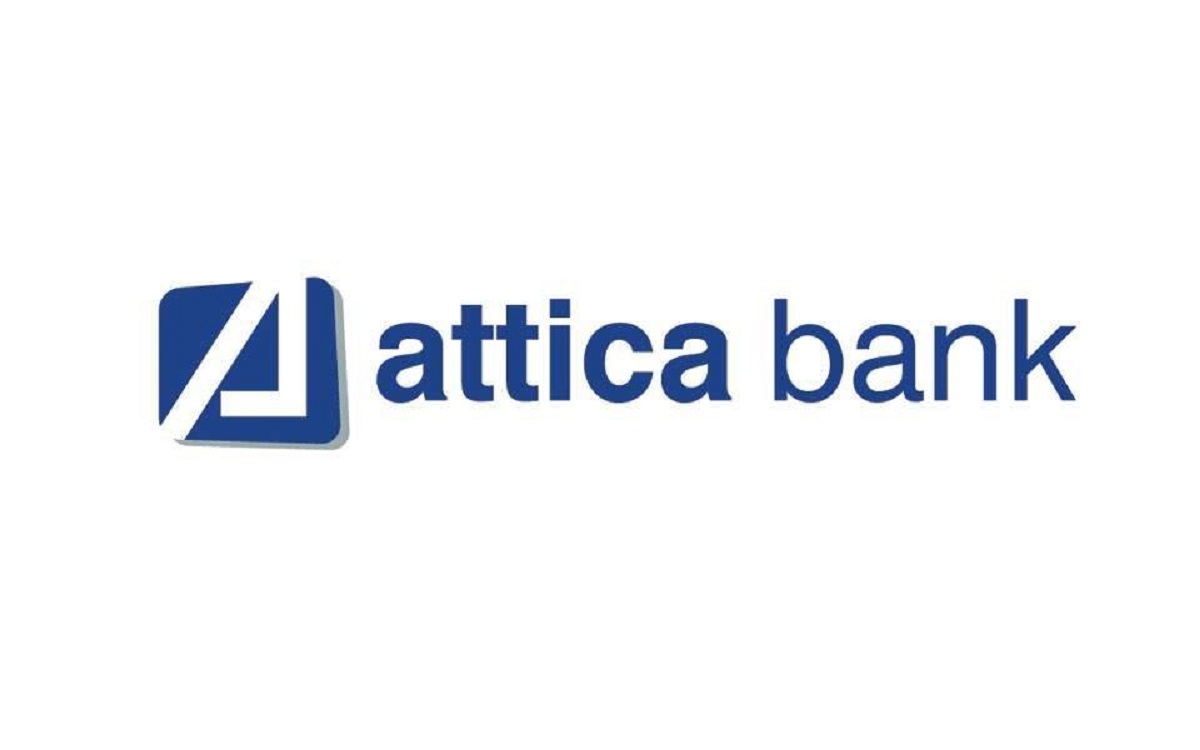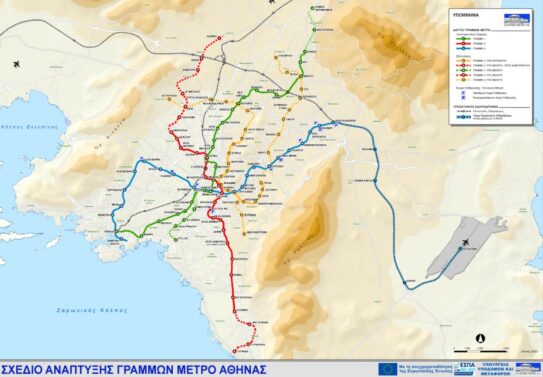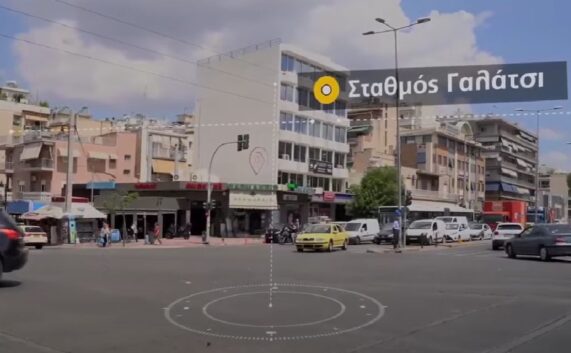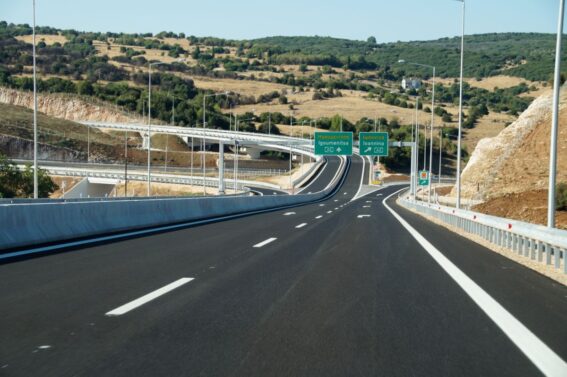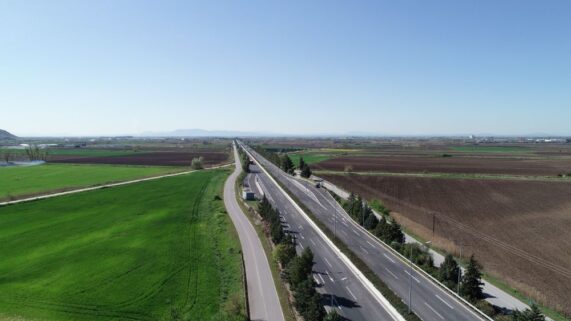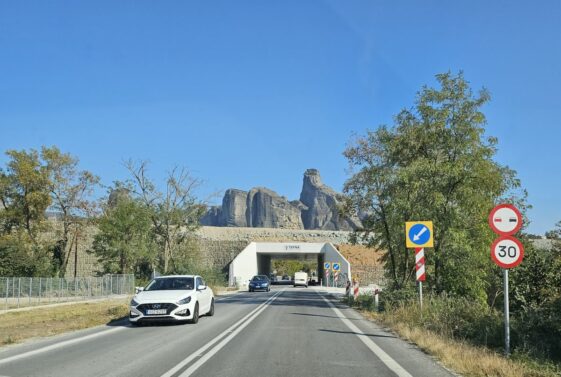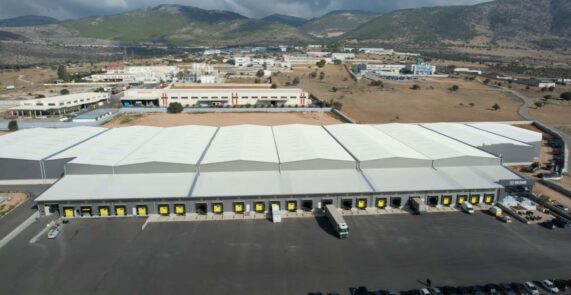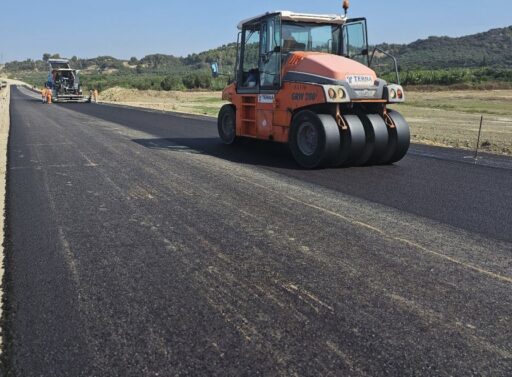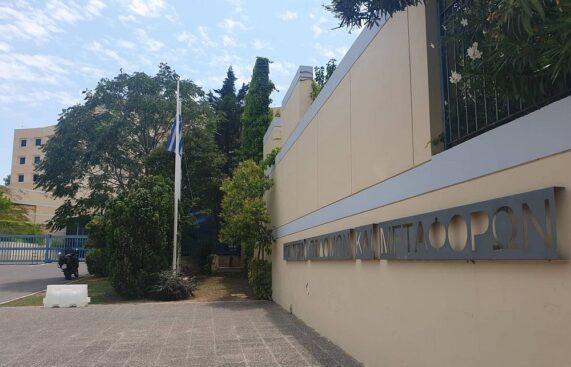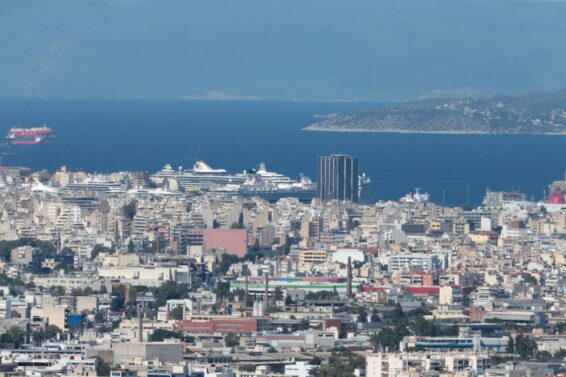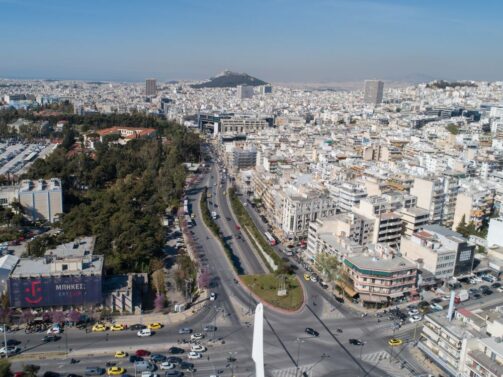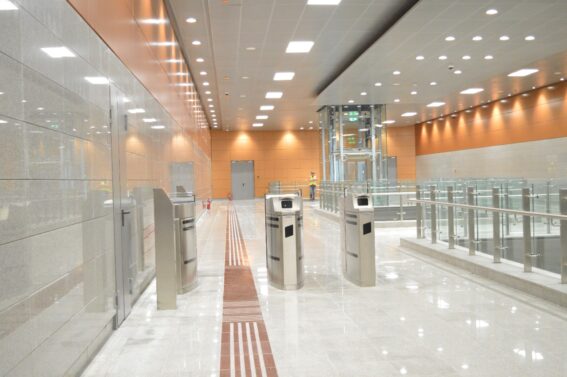Karla Gonzalez Carvajal, Practice Manage for Transport in Europe and former Minister of Public Works and Transportation of Costa Rica – World Bank Group, gave a very interesting interview to Nikos Karagiannis in ypodomes.com about transportation, the post-pandemic prospects and the challenges for Greece to become an international freight hub between Europe and Asia.
NK: Transportation is one of the biggest contributors to air pollution in the world. Europe has been trying over the last decade to promote electric vehicles and electrification in the railway. Do you believe these efforts are enough in the fight of decarbonisation or further actions must be taken?
Karla Gonzalez Carvajal: Electrification of vehicles and railways is essential to the decarbonization of transport, but it will not be sufficient on its own. Meeting the decarbonization goals of the European Green Deal as it relates to the transport sector will require multiple approaches through several entry points.
At the World Bank we often use the Avoid-Shift-Improve framework to inform our policy dialogue with our clients in Europe and across the world. Electrification is part of the “Improve” leg of this framework. But the “Avoid” and “Shift” components are equally important. For example, while reducing the use of fossil fuels in transportation is essential, preventing avoidable trips from happening in the first place should also be part of the equation.
This includes measures to minimize empty miles driven in the trucking sector; increase the utilization of all modes of freight transport so that the conveyance capacity of rail wagons, barges, trucks or vessels is maximized through cargo consolidation or improved trip planning; promote modal shift in supply chains towards low-carbon modes like rail freight and inland waterways; and promote and facilitate greater use of mass transit and non-motorized transport in urban mobility.
This also includes deeper collaboration between the private sector—the developers of the fuels and technologies of the future, the owners of the cargo being transported, the operators of public transit fleets and cargo fleets—and the public sector entities that plan transport infrastructure, regulate transport markets, and invest in service delivery and infrastructure provision improvements.
We should also take into consideration that there are instances in which electrification may not be viable or practical. For example, it is still an open question whether battery-electric powertrains are operationally viable for long-haul trucking, in which case other low-carbon and ideally zero-carbon fuels, such as green hydrogen, may prove advantageous.
Similarly in international maritime shipping, the zero-carbon bunker fuels of the future will need to be developed and quickly adopted at scale in order for global climate goals to be attained (shipping accounts for about 3% of global carbon emissions). Finally, it’s important to consider how ‘green’ is the electricity used for transportation; electrification of transport must go together with greening the energy mix.
In short, the decarbonization agenda goes well beyond electrification, will depend on behavior and innovation, and will require public and private collaborative approaches that are essential as not only Europe but the world, under the Paris Agreement, seek to decarbonize our economies over the next three decades. Greece, along with the rest of the EU, committed in 2015 to an intended nationally determined contribution (INDC) binding target of an at least 40% domestic reduction of greenhouse gas emissions by 2030 compared to 1990.
Furthermore, under the European Green Deal, which is aligned with the Paris Agreement, Greece and the EU have committed to becoming a net-zero greenhouse gas emissions economy by 2050.
In our view, there is no version of the future where these goals are met without putting transportation of freight and passengers at the forefront of climate policy, technology, and individual decision making.
The corona-virus pandemic has proved how vulnerable the transport industry is to face situations like this. We have seen the collapse of this sector, the aviation industry in particular. What kind of policies must be implemented in order to reassure the passengers that the future travels will be safe?
Karla Gonzalez Carvajal: It is true that the pandemic brought about tremendous disruption to transportation across the board, from intercontinental supply chains interrupted by backlogs at ports or factory closures at origin, to public transport trips plummeting due to lockdown measures—the latter severely impacting the economics of public transport companies, or even jeopardizing service continuity.
However, Europe and the world have come a long way since the start of the pandemic in terms of not only the medical breakthroughs with vaccines and vaccine distribution that are the cornerstone of the recovery process, but also in terms of lessons learned as to what works and doesn’t work to prevent the spread of the virus in many of the general public’s most common activities, including transportation.
We know for example that passenger air travel is generally safe, as the air circulation and filtering systems in the fuselage of passenger aircraft keep air fresh inside the cabin (indeed, social distancing and mask wearing while in the airport may be more critical to virus transmission prevention than the airborne portion of a journey by air).
Similarly with public transit in cities—ventilation systems in buses and urban railcars are effective at bringing fresh air into passenger compartments, and the time spent in urban transport trips is in most cases moderate. Metro systems in China have implemented booking systems to limit and control the number of people per metro cars and buses; innovative techniques (e.g., UVs) have been implemented to disinfect buses at scale.
This is why neither air travel nor public transit use have been associated with major outbreak events in the international experience. And in the freight world, transportation operations are more socially distant, by their nature, than passenger travel, hence the continued operation of most rail and sea freight services during the pandemic.
So I think what is needed is a continued effort on the part of public authorities and transport service providers alike to share information, stories, and experiences of users, and to avoid misinformation, as to the actual level of risk involved in public transportation activities, and the kinds of measures individuals and entities can take to mitigate risks even further.
Airports for example should continue to better allow for social distancing and facilitation of mask wearing in their premises, and on the freight side both governments and logistics service providers can work towards reducing delays and bottlenecks in border crossing points to allow for continued seamless trade flows—something that is particularly important in Europe. Finally, and this refers mainly to urban mobility and public transport operators, further budgetary support may be needed from governments to keep public transport services and companies afloat, at least on a temporary basis.
The long-term consequences of Covid-19 on urban mobility are still unclear, we’ve observed a surge in private car use – for people’s fear of being infected – as well as impressive increases in active mobility, in particular biking and e-biking. This is good news for health and congestion, but this also takes people out of buses.
NK: Digitalization, new technologies and big data have the potential to change the way cargo and traffic flows are organized and managed. What are the latest developments towards the goals that have been set from the E.U.?
Karla Gonzalez Carvajal: Digitalization indeed plays and will continue to play a critical role in the way cargo flows are managed and organized. This is what we call the transport efficiency agenda. Transport efficiency gains refer to ways in which we can do more with less resources – move more cargo with fewer trips, fewer pieces of equipment, less fuel, less congestion, and so on.
Here digitalization helps by optimizing trip planning, facilitating consolidation of cargo either from the same owner or across several different shippers, better matching shippers with cargo to move and carriers with capacity to handle that cargo, and better predicting future demand so that both congestion and under-utilization of existing capacity are avoided.
We see significant development in the technology used by freight forwarders and other “non-asset based” transportation companies, in the development of app-based transportation matching platforms (so-called “Uber for freight” solutions) and the rise of digital freight forwarders (so-called “Expedia for freight” solutions), and the greater adoption of frontier technologies like blockchain, which promise to reduce or eliminate much of the unnecessary paperwork embedded in supply chains that currently leads to delays, errors, and exceptions that make these chains less efficient, less predictable, and more costly.
NK: I would like to ask you a question about Greece. Over the last 20 years major infrastructure projects have transformed the Greek transport network. Do you believe that Greece can achieve its goal to be a world-class transport hub for freight between Europe -Asia and East Africa or other actions must be taken?
There’s good progress and further actions are needed. We believe that, as a result of not only the infrastructure projects that as you rightly point out have transformed the Greek transportation network, but equally importantly, as a result of significant achievements by the Greek Government in reforming the way the transport sector is administered and regulated, Greece today is in a credible position to transition from a transshipment hub to a logistics gateway for Europe (primarily Central Europe).
These reform achievements include, inter alia, the modernization of the governance system for maritime ports, which paved the way for the adoption of the landlord port model that attracted world-class terminal operators like COSCO at the Port of Piraeus; the full alignment of Greece’s railway sector institutional organization with the EU acquis; the initiation of efforts to gradually liberalize the Greek trucking sector; and the privatization of the national rail operator TrainOSE. Outcomes such as these allow Greece, already today, to be competitive as a gateway in several markets in Central Europe.
The challenge is how to scale this up going forward. This will require greater public-private collaboration, continued focus on service delivery improvements, deeper integration with Greece’s neighbors along the main international corridors linking Greece with Central Europe, and more investment in inland logistics, such as in logistics clusters and more efficient border crossing points. Supporting this agenda with digital technologies where appropriate, and ensuring that the underlying policy, regulatory, or legislative backbone is compatible with the digital transition, will also be key.
And lastly, being a world-class transport hub is not enough: it is critical that Greece continues developing value-added services alongside its logistics development. Again, this requires further collaboration with the private sector, human capital development and access to finance for entrepreneurs to boost the country’s economy, spur jobs, and growth.
ΜΗΝ ΞΕΧΑΣΕΤΕ
- Ακολουθήστε το ypodomes.com στο Google News και μάθετε πρώτοι όλες τις ειδήσεις για τις υποδομές στην Ελλάδα
- Αν είστε επαγγελματίας του κλάδου, ακολουθήστε μας στο LinkedIn
- Εγγραφείτε στο Ypodomes Web TV


